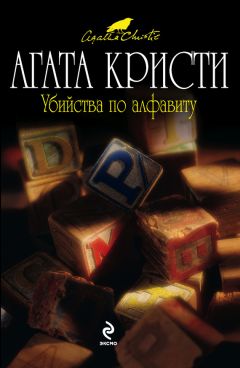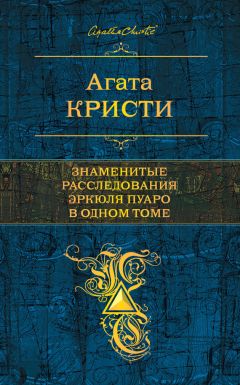Agatha Christie - Английский язык с Агатой Кристи. Убийства по алфавиту
tense [tens], attention [ǝˈtenʃ(ǝ)n], select [sɪˈlekt]
We were sitting in a state of tense attention to listen to Poirot's final explanation of the case.
"All along," he said, "I have been worried over the why of this case. Hastings said to me the other day that the case was ended. I replied to him that the case was the man. The mystery was not the mystery of the murders, but the mystery of A.B.C.. Why did he find it necessary to commit these murders? Why did he select me as his adversary?"
"It is no answer (это не ответ) to say that the man was mentally unhinged (говорить, что человек был с душевным расстройством; to unhinge —выбивать из колеи, лишать душевного равновесия: «снимать с /верных/ петель»; hinge — петля /напр., дверная/). To say a man does mad things (сказать, что человек совершает сумасшедшие вещи) because he is mad (потому что он сумасшедший) is merely unintelligent and stupid (это просто неумно и тупо). A madman is as logical and reasoned in his action as a sane man (сумасшедший человек столь же логичен и разумен в своих действиях, как здоровый человек; to reason — рассуждать; аргументировать) — given his peculiar biased point of view (принимая во внимание его причудливо склоненную = необъективную точку зрения; to bias — склонять; настраивать). For example (например), if a man insists on going out (если человек настаивает на /том, что бы/ выйти) and squatting about in nothing but a loincloth (и разгуливать ни в чем, в одной лишь набедренной повязке; loin — поясница; to squat — сидеть на корточках; садиться на корточки) his conduct seems eccentric in the extreme (его поведение кажется эксцентричным в крайней степени). But once you know (но стоит вам узнать) that the man himself is firmly convinced (что сам человек твердо убежден) that he is Mahatma Gandhi[49] (что он Махатма Ганди), then his conduct becomes perfectly reasonable and logical (тогда его поведение становится совершенно разумным и логичным)."
bias [ˈbaɪǝs], squat [skwɔt], loincloth [ˈlɔɪnklɔƟ]
"It is no answer to say that the man was mentally unhinged. To say a man does mad things because he is mad is merely unintelligent and stupid. A madman is as logical and reasoned in his action as a sane man — given his peculiar biased point of view. For example, if a man insists on going out and squatting about in nothing but a loincloth his conduct seems eccentric in the extreme. But once you know that the man himself is firmly convinced that he is Mahatma Gandhi, then his conduct becomes perfectly reasonable and logical."
"What was necessary in this case (что было необходимо в этом деле) was to imagine a mind so constituted (это вообразить ум, устроенный так) that it was logical (чтобы было логично) and reasonable to commit four or more murders (и разумно совершить четыре или больше убийств) and to announce them beforehand by letters written to Hercule Poirot (и объявить о них заранее письмами, написанными Эркюлю Пуаро)."
"My friend, Hastings (мой друг Гастингс), will tell you (расскажет вам) that from the moment (что с того момента) I received the first letter (как я получил первое письмо) I was upset and disturbed (я был расстроен и взволнован; to upset — опрокидывать, переворачивать /о лодке, автомобиле и т. п./; upset — расстроенный, огорченный). It seemed to me at once (мне сразу показалось) that there was something very wrong about the letter (что было что-то очень неправильное относительно этого письма = что в этом письме что-то не так)."
"You were quite right," said Franklin Clarke dryly (вы были совершенно правы, — сказал Франклин Кларк сухо).
constitute [ˈkɔnstɪtju:t], reasonable [ˈri:zǝnǝbl], disturb [dɪsˈtǝ:b]
"What was necessary in this case was to imagine a mind so constituted that it was logical and reasonable to commit four or more murders and to announce them beforehand by letters written to Hercule Poirot."
"My friend, Hastings, will tell you that from the moment I received the first letter I was upset and disturbed. It seemed to me at once that there was something very wrong about the letter."
"You were quite right," said Franklin Clarke dryly.
"Yes. But there (но там), at the very start (с самого начала), I made a grave error (я совершил серьезную ошибку). I permitted my feeling (я позволил моему чувству) — my very strong feeling about the letter (моему очень сильному чувству относительно письма) to remain a mere impression (остаться простым впечатлением). I treated it (я отнесся к нему) as though it had been an intuition (как будто это была интуиция). In a well-balanced (в хорошо сбалансированном), reasoning mind (рассуждающем = склонном к рассудениям уме) there is no such thing as an intuition (нет такой вещи, как интуиция) — an inspired guess (вдохновенная догадка)! You can guess (вы можете догадаться), of course (конечно) — and a guess is either right (и догадка является либо правильной) or wrong (либо неправильной). If it is right (если она правильная) you call it an intuition (вы называете ее интуицией). If it is wrong (если она неверная) you usually do not speak of it again (вы обычно снова о ней не говорите).
But what is often called an intuition is really impression (но то, что часто называют интуицией, является на самом деле впечатлением) based on logical deduction (основанном на логической дедукции) or experience (или опыте). When an expert feels (когда эксперт чувствует) that there is something wrong about a picture (что с картиной что-то не так) or a piece of furniture (или с предметом мебели) or the signature on a cheque (или с подписью на чеке) he is really basing that feeling on a host of small signs and details (он, на самом деле, основывает это чувство на группе маленьких знаков и деталей). He has no need to go into them minutely (ему нет нужды вникать в них детально/досконально) — his experience obviates that (его опыт избегает этого) — the net result is the definite impression (конечный результат является определенным впечатлением) that something is wrong (что что-то неверно). But it is not a guess (но это не догадка), it is an impression based on experience (это есть впечатление, основанное на опыте)."
deduction [dɪˈdʌkʃ(ǝ)n], intuition [ˌɪntju(:)ɪʃ(ǝ)n], obviate [ˈɔbvɪeɪt]
"Yes. But there, at the very start, I made a grave error. I permitted my feeling — my very strong feeling about the letter to remain a mere impression. I treated it as though it had been an intuition. In a well-balanced, reasoning mind them is no such thing as an intuition — an inspired guess! You can guess, of course — and a guess is either right or wrong. If it is right you call it an intuition. If it is wrong you usually do not speak of it again.
But what is often called an intuition is really impression based on logical deduction or experience. When an expert feels that there is something wrong about a picture or a piece of furniture or the signature on a cheque he is really basing that feeling on a host of small signs and details. He has no need to go into them minutely — his experience obviates that — the net result is the definite impression that something is wrong. But it is not a guess, it is an impression based on experience."
"Eh bien (ну, так), I admit (я признаю) that I did not regard that first letter (что не рассматривал то первое письмо) in the way I should (тем образом, которым мне следовало). It just made me extremely uneasy (это просто меня крайне обеспокоило: «это просто сделало меня крайне неспокойным»). The police regarded it as a hoax (полиция рассматривала это как розыгрыш). I myself took it seriously (я сам принимал это серьезно). I was convinced (я был убежден) that a murder would take place in Andover (что убийство произойдет в Эндовере) as stated (как утверждалось). As you know (как вы знаете), a murder did take place (убийство действительно произошло)."




